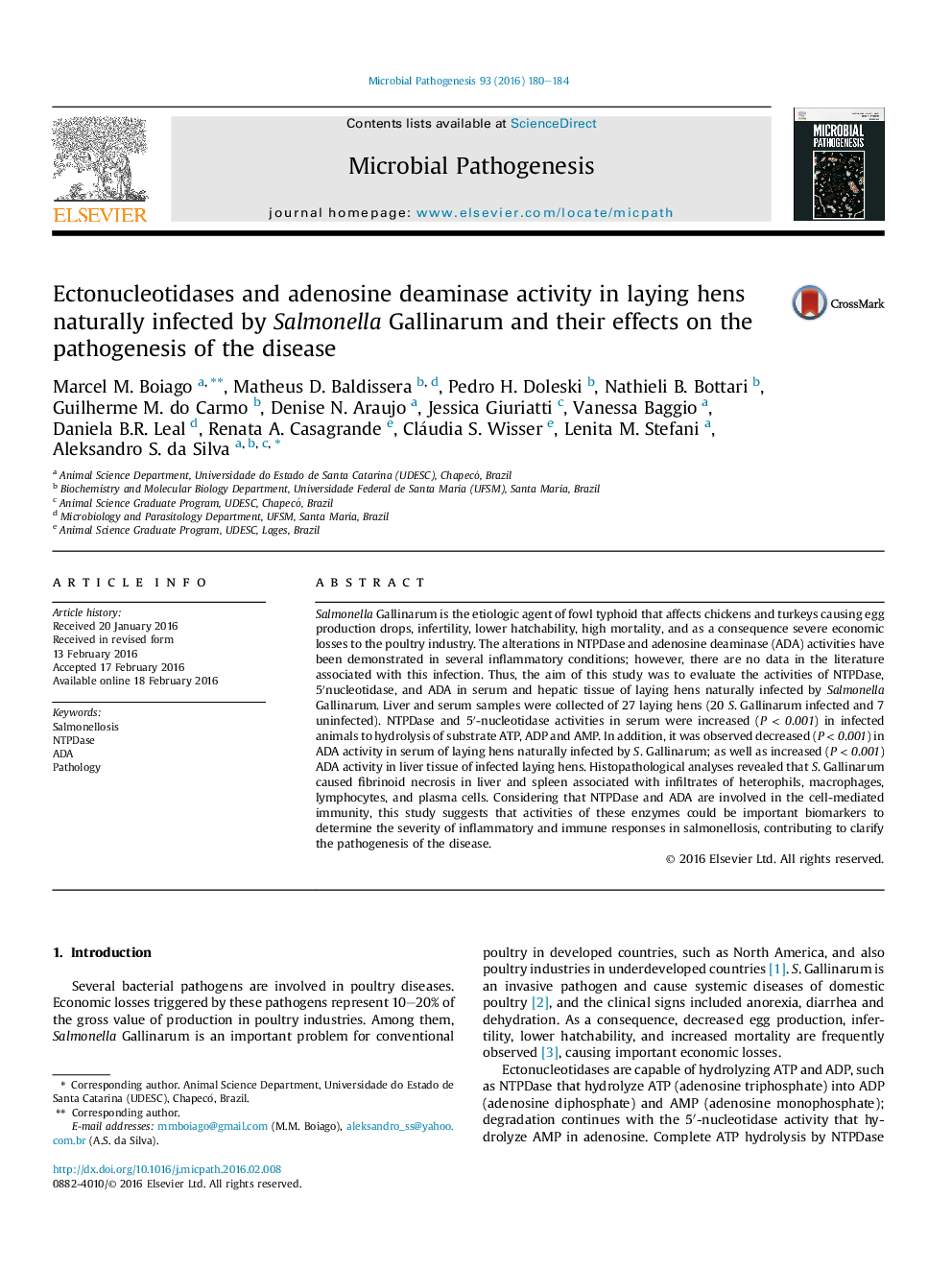| کد مقاله | کد نشریه | سال انتشار | مقاله انگلیسی | نسخه تمام متن |
|---|---|---|---|---|
| 3416327 | 1593696 | 2016 | 5 صفحه PDF | دانلود رایگان |

• Salmonella Gallinarum is an important problem for conventional poultry in developed countries.
• NTPDase and adenosine deaminase activities have been demonstrated in several inflammatory conditions.
• Changes in activities of NTPDase, 5′nucleotidase, and ADA in laying hens naturally infected by Salmonella were observed.
• These enzymes could be biomarkers to determine the severity of inflammatory responses in salmonellosis.
• The enzymatic alterations in the purinergic system is related to the pathogenesis of the disease.
Salmonella Gallinarum is the etiologic agent of fowl typhoid that affects chickens and turkeys causing egg production drops, infertility, lower hatchability, high mortality, and as a consequence severe economic losses to the poultry industry. The alterations in NTPDase and adenosine deaminase (ADA) activities have been demonstrated in several inflammatory conditions; however, there are no data in the literature associated with this infection. Thus, the aim of this study was to evaluate the activities of NTPDase, 5′nucleotidase, and ADA in serum and hepatic tissue of laying hens naturally infected by Salmonella Gallinarum. Liver and serum samples were collected of 27 laying hens (20 S. Gallinarum infected and 7 uninfected). NTPDase and 5′-nucleotidase activities in serum were increased (P < 0.001) in infected animals to hydrolysis of substrate ATP, ADP and AMP. In addition, it was observed decreased (P < 0.001) in ADA activity in serum of laying hens naturally infected by S. Gallinarum; as well as increased (P < 0.001) ADA activity in liver tissue of infected laying hens. Histopathological analyses revealed that S. Gallinarum caused fibrinoid necrosis in liver and spleen associated with infiltrates of heterophils, macrophages, lymphocytes, and plasma cells. Considering that NTPDase and ADA are involved in the cell-mediated immunity, this study suggests that activities of these enzymes could be important biomarkers to determine the severity of inflammatory and immune responses in salmonellosis, contributing to clarify the pathogenesis of the disease.
Journal: Microbial Pathogenesis - Volume 93, April 2016, Pages 180–184